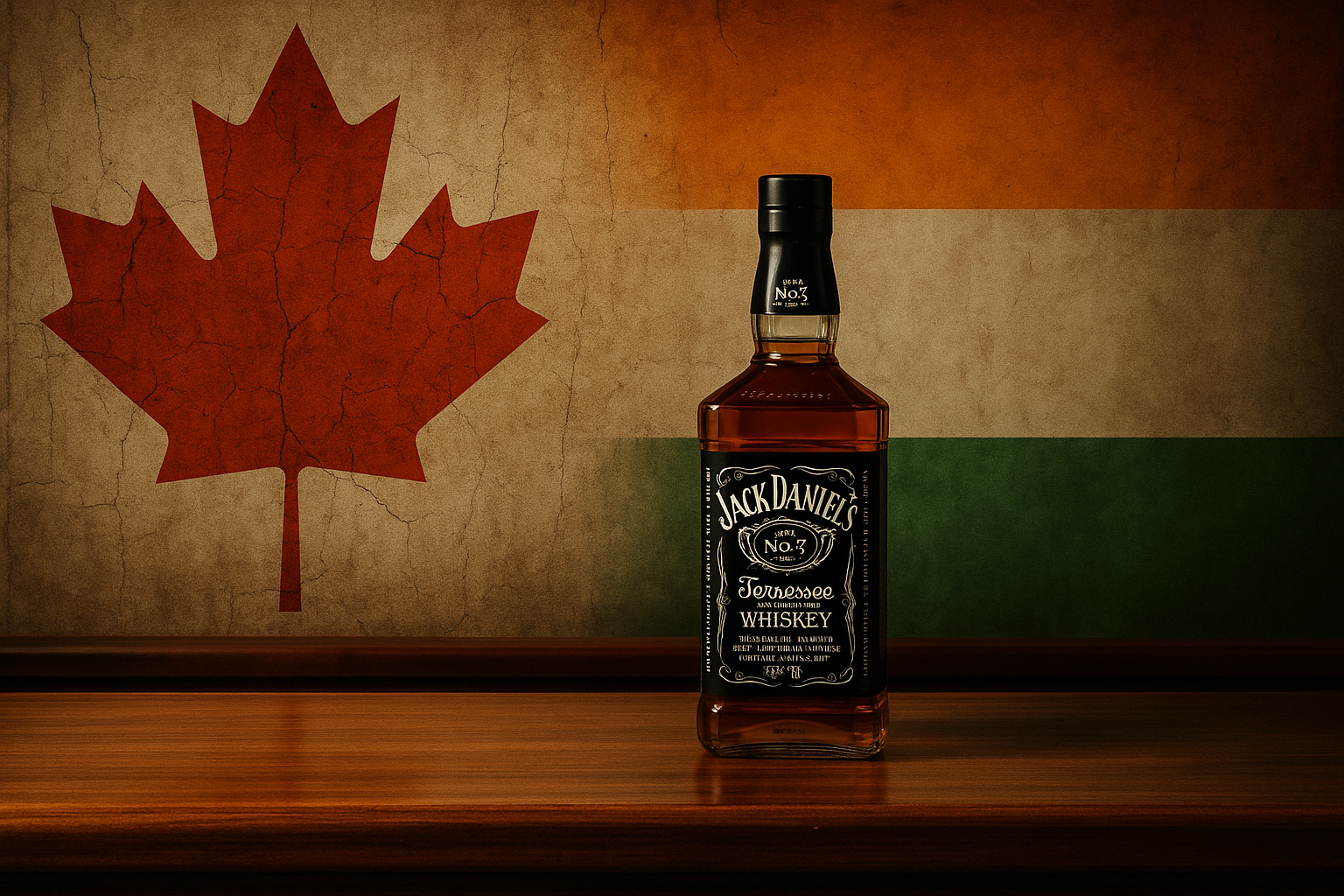Jack Daniel's parent company is learning a hard lesson about the messy intersection of booze and international relations. Brown-Forman recently disclosed a jaw-dropping 62% nosedive in Canadian sales thanks to a boycott stemming from—of all things—a diplomatic spat between Canada and India.
I've covered consumer boycotts for years, and let me tell you, this isn't your garden-variety brand switching. A 62% collapse doesn't just happen because folks suddenly prefer Canadian Club. That's the kind of number that makes executives reach for their own product after quarterly meetings.
When Brown-Forman described the impact as "significant" during their earnings call, they were engaging in that peculiar corporate understatement that translates roughly to "holy hell, what just happened to our Canadian market?" Trust me, when a C-suite type uses "significant" regarding sales declines, they're practically sending up distress flares.
The whole mess traces back to Canada accusing India of involvement in killing a Sikh separatist on Canadian soil. India, predictably, denies everything. Things escalated, diplomats got booted from both countries, and somehow—through that strange alchemy of consumer politics—Canadians decided American whiskey needed punishing.
Look, there's something almost darkly comical about a Tennessee distillery getting caught in the crossfire between Ottawa and New Delhi. Brown-Forman didn't wake up one morning and take a controversial stand on Sikh separatism. They just make whiskey. Really popular whiskey, as it happens (or... happened, in Canada).
What fascinates me about these situations is how corporate planning cycles crash headlong into unpredictable diplomatic flare-ups. The poor VP of North American sales probably had perfectly reasonable quarterly projections before suddenly finding their Canadian market evaporating over a geopolitical conflict their Louisville headquarters had nothing to do with.
Brown-Forman's portfolio actually includes Canadian Mist whisky, yet it's their American flagship taking the biggest hit. This suggests something beyond general anti-American sentiment—it's about targeting iconic American brands as symbolic protest vessels.
And the ripple effects? Brutal. Distribution networks get gummed up. Inventory collects dust. Marketing campaigns crafted for normal conditions suddenly seem tone-deaf. The company now faces tough choices about whether to wait out Canadian consumers' anger or shift resources elsewhere.
I spoke with a retail analyst who's been tracking the situation since it began. "The real question isn't just immediate sales impact," she told me. "It's whether this creates lasting changes in Canadian drinking habits. Consumers discovering new spirits might not come back to Jack even after tensions cool."
Having watched similar boycotts play out in other sectors, I'd bet this one eventually loses steam—these things typically do as news cycles move on. But the short-term pain? Very real. And potentially very expensive.
The whole situation serves as a stark reminder that even the most careful corporate risk management can't fully account for how global politics might suddenly reshape your market. Sometimes you're just the whiskey company that happened to be in the wrong place at the wrong time.
And isn't that just the nature of our deeply interconnected, occasionally irrational global marketplace? Companies increasingly find themselves unwitting characters in geopolitical dramas they never auditioned for.
For now, Brown-Forman executives probably have one question: how long till Canadians decide they miss their Tennessee whiskey more than they care about this particular diplomatic standoff?
